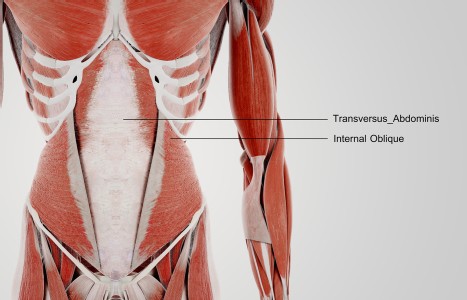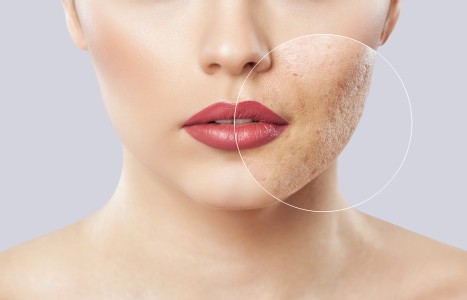TrA-2, my primary needle location, I needle 95% of the time and I think it works the best. You’ll know you have the right point location when you discover the muscle twitching when applying electric stimulation.
Making Private Practice Work: Part III
In my last article, I used the analogy that acupuncture works like adding more minutes to a sprinkler system to help turn a brown lawn back to green. I suggested using this explanation to allow you to manage the stress that arises from the uncertainty over your treatment outcomes. I also mentioned that this explanation allows you to help your patients understand the remarkably wide range of conditions acupuncture has the potential to treat. Now, I want to focus on how framing acupuncture as a therapy that stimulates the body's internal resources is the best way to educate your patients - leading to more referrals - while also giving you a great theme for all your public education/marketing efforts.
It is ironic that acupuncture's greatest asset - its ability to treat a wide range of conditions - is also one of the greatest obstacles we face in educating the public about this therapy. The old saying that if something sounds too good to be true it probably is, reflects the skepticism many in the public have about acupuncture. It sounds too good to be true that sticking needles in people can help the many different types of problems acupuncturists claim, especially in a culture where medicine has been divided into numerous specialties. And acupuncturists do nothing to ease this skepticism when they try to explain acupuncture as a method to improve qi flow. Throughout time, even authorities in Chinese medicine have had trouble understanding qi in such a way that they could explain to others. If nothing else, I hope I can at least help others realize how important it is to explain acupuncture as a therapy that stimulates internal resources.

When you frame acupuncture's effects as taking place by stimulating the body's own resources, you begin to open your patient's eyes to the wide range of conditions you have the ability to treat. Because people are used to doctors being specialists, they will have a hard time excepting that anyone could truly know how to treat problems in such diverse areas as allergies, dermatology, reproductive and internal medicine, pain management, and so on. How could anyone be qualified in all of those different specialties? Why should anyone believe that you could be successful for all those problems when the medical doctors they trust and who spent years of specialized study were not able to help them?
You can address this skepticism by teaching your patients that acupuncturists are specialists. We specialize in helping to squeeze more good out of the body's self-healing resources. I sometimes explain this by saying that acupuncture… "greases the wheels of the body's self-healing mechanisms." It is the body's own resources that does the healing, acupuncture just aids that process. Because acupuncturists specialize in this one thing, we have the ability to help a multitude of things just as adding more water can restore health to different types of lawns.
Although explaining acupuncture's potential as the potential of the body's own self-healing abilities is a straight-forward way of putting it, most of your patients will need to be reminded of this over and over. They will tend to keep asking you if acupuncture can be helpful for this or that condition. I sometimes tell my patients that any time they have a question about if acupuncture can help a specific condition, they can substitute the phrase "stimulating the body's self-healing abilities" for the word "acupuncture." So instead of wondering if acupuncture can help a condition like asthma or dysmenorrhea, they should think of it as wondering if stimulating the body's self-healing abilities could help asthma or dysmenorrhea. The answer to that question is usually "Yes."
When you keep reminding your patients about acupuncture's ability to stimulate self-healing, it helps them more fully appreciate how valuable your services can be. You are a specialist in squeezing more good out of their own resources. Who would not want to take advantage of that? Most people are tired of the drugs their doctors rely on for treating every problem. Once it starts to sink-in people's heads that you can help them get the most good out of their own natural resources, they will start to look to you as a first resource instead of as a last resort. This dramatically changes the relationship you develop with your patients as well as the how often they will look to use your services or refer others to you.
When patients go to an acupuncturist for some problem no one has been able to help them with and that acupuncturist is successful in treating that problem, it creates loyalty toward that acupuncturist, but often only for the same type of problem the patient was treated for. No matter how great they thought you were for the problem you helped them with, patients won't necessarily think of you if they or someone they know suffers from a different type of problem. Help them with their asthma and they may not think that you could help them for something like dysmenorrhea. Help them with dysmenorrhea and they may not think of you if they have a problem with asthma. I saw this happen dozens of times with my patients over the years before I wised-up and began training them that because I am a specialist in squeezing the most good out of their own resources, they should always check with me for any problem that could be helped in this way. Better yet, I teach them to check with me for advice on any problem and I will let them know if it is the type that would respond to a boost of the body's resources.
Framing acupuncture this way also works well when giving public talks. It is so quick and easy to understand. Because the public has little understanding about acupuncture, giving talks to local groups can be very helping in building a practice. Some acupuncturists, however, are not comfortable speaking in public and find it difficult to explain their services especially when giving a qi based explanation of acupuncture. A great way to start a talk about acupuncture is to ask the audience this:
"If I could wave a magic wand and help you to get more good out of your own healing resources, would you be interested in that?" Most people will indicate that they would. You then tell them:
"Sorry, I don't have a magic wand, but I can help to boost your own healing resources with acupuncture."
This takes about 30 seconds and sets up how you will then go about answering all the questions that follow. The "turning brown grass to green" analogy I gave in my last article can be used to explain the details of how acupuncture works or may not work in any given case. Whether you describe acupuncture as greasing the wheels of the body's self-healing mechanisms or adding more minutes to a sprinkler system, I think you'll find people will easily understand these explanations and will come to rely on your services that much more.


